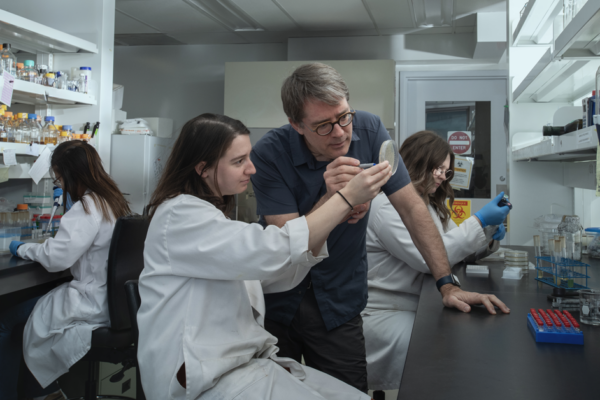-
YOU ARE
- Community member
- Future Student
- Student
- Professor
- Alumni
- Media
- Guidance counsellors
- INRS retiree
- Contact Us
- Newsroom
- Careers
- FR
-
Studies
We teach the next generation of researchers to develop scientific, social, and technological innovations.
-
Research
We find solutions through interdisciplinary research and industry or public and community partnerships.
-
INRS
We play an active role in Québec's economic, social, and cultural development.
The microbiota is key to solving the challenges of modern agriculture. If we can understand its complexity and find ways to manipulate it effectively and reproducibly, it will bring about a major paradigm shift in agriculture, where microorganisms will finally have their rightful place at the center of agricultural management decisions.
Chairholder
Context
The microbiota influences the phenotype of plants. For example, certain microorganisms accelerate plant growth, help to fight pathogens and stress, and mobilize nutrients from the soil. However, given the immeasurable microbial diversity, the complexity of their interactions with plants, and the lack of theoretical foundation in ecology, most efforts to improve certain plant traits by manipulating the microbiota have ended in failure. The Canada Research Chair in Ecological Manipulation of Plant Microbiota will use an innovative approach based on recent advances in metagenomics and machine learning as well as ecological community theory to model and then manipulate plant microbiota.
Objectives
The objectives of the chair will therefore be to: 1) model the relationship between microbiota and ecosystem processes, 2) identify the microorganisms and functional traits key to this relationship, and 3) manipulate these microorganisms and functional traits to optimize ecosystem processes. In other words, the aim is to manipulate the microbiota of agricultural plants in an ecological way. This will make it possible to reduce fertilizers and pesticides while increasing yields and product quality, as well as resilience to climate change, without resorting to slow approaches such as plant breeding or controversial approaches such as genetic modification.

